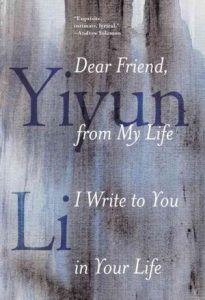Craft of Writing: If Wallace Stevens could talk to Toll Brothers
Disillusionment of Ten O’Clock
by Wallace Stevens
The houses are haunted
By white night-gowns.
None are green,
Or purple with green rings,
Or green with yellow rings,
Or yellow with blue rings.
None of them are strange,
With socks of lace
And beaded ceintures.
People are not going
To dream of baboons and periwinkles.
Only, here and there, an old sailor,
Drunk and asleep in his boots,
Catches tigers
In red weather.
When I landed in the United States, my aunt drove me home from the airport to her house, where I would stay for a few weeks before going on to graduate school. I remember the deafening silence during the drive. My aunt and I had plenty to say to each other, but throughout the drive I was aware of a silence that began outside the raised windows of her car and extended to the moving scrim of houses and buildings in the neighborhoods we passed as we drove to her home in an expensive Cincinnati suburb. To me, the silence was tremulous. It hung like a cobweb, threatening to shatter into the noise and chaos I was used to on the city streets of India, which were filled with honking and the sound of engines sputtering, the discrete sounds of transport vehicles fashioned out of the cabins of small trucks, extended to contain seats for anywhere between 3 to 10 passengers, of scooters, of motorbike riders revving and roaring, all against the irrepressible tinkle and chime of bicycle bells, clanking obstinately between their fuel-driven counterparts. Only, it didn’t. The silence remained unbroken. When we pulled into her curving cobble-stone driveway and I stepped out of the car, the silence grew louder, broken only by occasional bird-call. The quietness made me so uncomfortable, I could not sleep for nights. Is it this silence that dresses the American suburb, and haunts its houses, bathed in the bright light of bulbs, in the white night-gowns of Steven’s poem? Not comforting like the silence of the woods, or a quiet garden scene, but a silence borne from the lack of necessary disorder, a silence that is artificial and curated by the very laws and regulations that make American suburbia the haven of safety and predictability that is its unique selling point?
Stevens’ poem is a commentary against the anodyne life of the American suburb. The sameness of the homes, the white-lit unity of their little blocks and fences and lawns, the trundling mail-truck. None of them are strange, he says, but why would we be, the houses might say in reply. The people who live here are not going to dream of baboons and periwinkles. There is no place here for the artistic and the frenzied, or for the outlier. It is only the poet who wants to experience life in its many colors. The poet is alone in craving the sight of purple houses with green rings. For company, he has the drunken sailor, who, having rejected social mores and himself been rejected by society, dreams of catching tigers in red weather. Modern, civilized society is blind to its own delirium. Everything that is colorful and human and alive is lost in this ghost-country of perfect homes and perfect order. “Give me chaos, give me truth, give me danger,” is the implicit cry of the poet, but he will not be granted it; to have access to it, he too has to live on the fringes of society, like the sailor asleep in a drunken stupor, still wearing his boots. The cost of freedom is too high to pay for those who buy into the humming dullness of ordinary living. The American suburb is part of this American mythology — it is a product of the nearly mythical reach of urban and suburban sprawl, and the industries that run behind these systems to make them look and work the way they do. The poet pleads for the mythical qualities of color and wildness, of animals and exotic accoutrements, as absurd as lace and beaded belts, to somehow make their appearance and redeem modern American living of its curse of uniformity and conformity.
By using whimsical and absurd imagery that is the complete opposite of everything that the poet actually sees, Stevens evokes the vigor that is absent from modern living with its trappings of comfort and respectability. How wonderful that we can never know what exactly a tiger in red weather is. But we can dream of it. Yet even that dream, of a tiger bounding and leaping, borne from some deep and unexplored desire, is the luxury of a homeless sailor. The people who live in the neatly painted homes set in rows upon a street, have lost even the ability to dream of what they might truly want and need.
– Mary Ann Koruth




